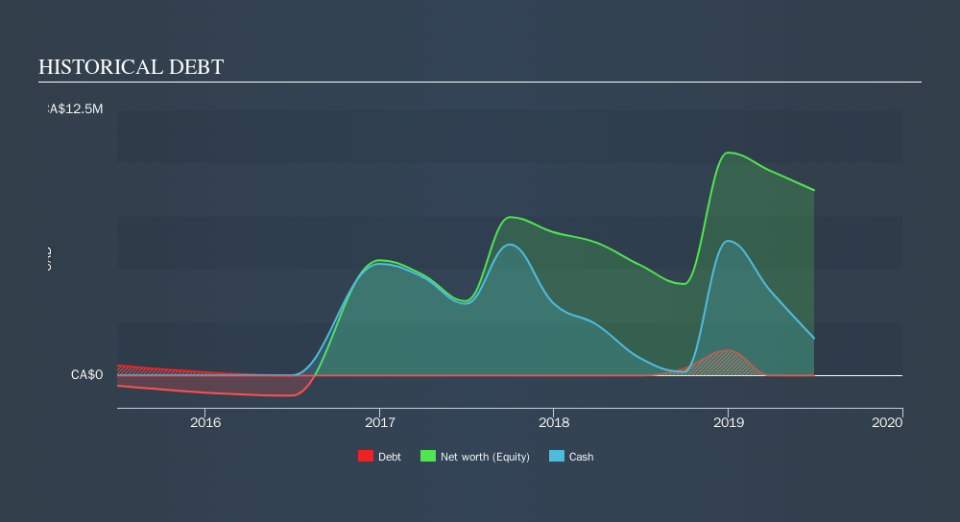We're A Little Worried About Japan Gold's (CVE:JG) Cash Burn Rate

Even when a business is losing money, it's possible for shareholders to make money if they buy a good business at the right price. For example, Japan Gold (CVE:JG) shareholders have done very well over the last year, with the share price soaring by 133%. But while history lauds those rare successes, those that fail are often forgotten; who remembers Pets.com?
In light of its strong share price run, we think now is a good time to investigate how risky Japan Gold's cash burn is. For the purpose of this article, we'll define cash burn as the amount of cash the company is spending each year to fund its growth (also called its negative free cash flow). First, we'll determine its cash runway by comparing its cash burn with its cash reserves.
View our latest analysis for Japan Gold
Does Japan Gold Have A Long Cash Runway?
A cash runway is defined as the length of time it would take a company to run out of money if it kept spending at its current rate of cash burn. In June 2019, Japan Gold had CA$1.8m in cash, and was debt-free. Looking at the last year, the company burnt through CA$5.7m. So it had a cash runway of approximately 4 months from June 2019. That's a very short cash runway which indicates an imminent need to douse the cash burn or find more funding. You can see how its cash balance has changed over time in the image below.
How Is Japan Gold's Cash Burn Changing Over Time?
Because Japan Gold isn't currently generating revenue, we consider it an early-stage business. Nonetheless, we can still examine its cash burn trajectory as part of our assessment of its cash burn situation. Given the length of the cash runway, we'd interpret the 26% reduction in cash burn, in twelve months, as prudent if not necessary for capital preservation. While the past is always worth studying, it is the future that matters most of all. So you might want to take a peek at how much the company is expected to grow in the next few years.
Can Japan Gold Raise More Cash Easily?
Even though it has reduced its cash burn recently, shareholders should still consider how easy it would be for Japan Gold to raise more cash in the future. Generally speaking, a listed business can raise new cash through issuing shares or taking on debt. Commonly, a business will sell new shares in itself to raise cash to drive growth. By looking at a company's cash burn relative to its market capitalisation, we gain insight on how much shareholders would be diluted if the company needed to raise enough cash to cover another year's cash burn.
Since it has a market capitalisation of CA$34m, Japan Gold's CA$5.7m in cash burn equates to about 17% of its market value. As a result, we'd venture that the company could raise more cash for growth without much trouble, albeit at the cost of some dilution.
So, Should We Worry About Japan Gold's Cash Burn?
On this analysis of Japan Gold's cash burn, we think its cash burn reduction was reassuring, while its cash runway has us a bit worried. After looking at that range of measures, we think shareholders should be extremely attentive to how the company is using its cash, as the cash burn makes us uncomfortable. While it's important to consider hard data like the metrics discussed above, many investors would also be interested to note that Japan Gold insiders have been trading shares in the company. Click here to find out if they have been buying or selling.
Of course Japan Gold may not be the best stock to buy. So you may wish to see this free collection of companies boasting high return on equity, or this list of stocks that insiders are buying.
We aim to bring you long-term focused research analysis driven by fundamental data. Note that our analysis may not factor in the latest price-sensitive company announcements or qualitative material.
If you spot an error that warrants correction, please contact the editor at editorial-team@simplywallst.com. This article by Simply Wall St is general in nature. It does not constitute a recommendation to buy or sell any stock, and does not take account of your objectives, or your financial situation. Simply Wall St has no position in the stocks mentioned. Thank you for reading.

 Yahoo Finance
Yahoo Finance 